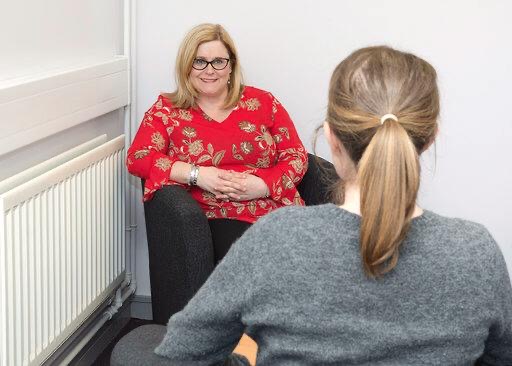
It is without doubt that caring for someone with a learning
disability can bring an abundance of happiness; however it can at times be
worrying, stressful, hard work and overwhelming. It has been my experience that
parents/carers, siblings and even grandparents require, at times, extra support
in order to process their thoughts and feelings. The benefit of coming to us is
that you are able to discuss the mixed emotions in a confidential,
non-judgemental environment, as it is often hard to discuss these feelings with
other family members.
Acceptance of
diagnosis - The news that your child has a learning disability can bring
feelings of shock and disbelief. The need for further information is vital. It
is a very uncertain time as ‘learning disability’ covers a wide range of
presenting issues. Parents and other family members will be keen to establish
what the learning disability is, how this will manifest in the child and what
this will mean in the long term. Discussing these feelings with a qualified
counsellor can help to process these feelings and come to a place of
acceptance.
Concerns about
physical/mental health of the person with a learning disability – We all
worry about our children, regardless of their age, but it is especially true if
they have any health concerns. Counselling provides the parent/carer with time
to explore these concerns confidentially therefore without unnecessarily
worrying other family members.
Stress associated
with caring roles - Caring for
someone with a learning disability is a lifelong role and, as with parenting
any child into adulthood, there are times of difficulties, such as difficult
behaviours and restriction on your free time.
Parents can become overwhelmed and stressed, which is natural for any
caring role. As with any other family unit, many other problematic issues can arise
such as sibling rivalry, relationship breakdowns, debt worries, substance
misuse, etc. Offering you the time and
space to tell your story in a confidential, non-judgemental environment will
help to improve your relationships with others and feel happier about yourself
and your circumstances.
Moving from school to
adult services - Another time that parents and carers find difficult is the
transition from school to adult services. The safety of school is being left
behind and there is an influx of new information, places and faces! This is
undoubtedly a time of uncertainty; finding the best placement, ensuring that
the young person settles etc., and, in many cases, the need to consider
alternative working arrangements to suit the new changes. In this phase it is
very normal for parents to be struggling with their child ‘growing up’ and
making decisions for themselves. It is without doubt that a teenage child with
a learning disability creates another layer of vulnerability and it is
understandable that parents would feel the need to protect and keep their
family member safe. It is beneficial to discuss these fears and explore
feelings of anxiety about these inevitable changes.
Moving into
residential/supported living - In my experience another difficult time for
parents is when they are ageing themselves and have concerns about what will
become of their child if anything should happen to them. This is a very
difficult decision for parents to consider and understandably a very
challenging conversation to have with their child and other family members. The
move from the family home to supported living/residential care can be a tough
time for all involved. Parents/carers may have conflicting thoughts and
feelings about the move. Taking the time to explore these thoughts and feelings
may help parent/carer gain more confidence in their reasoning for the decision,
which will therefore help them to be more accepting of the changes ahead.